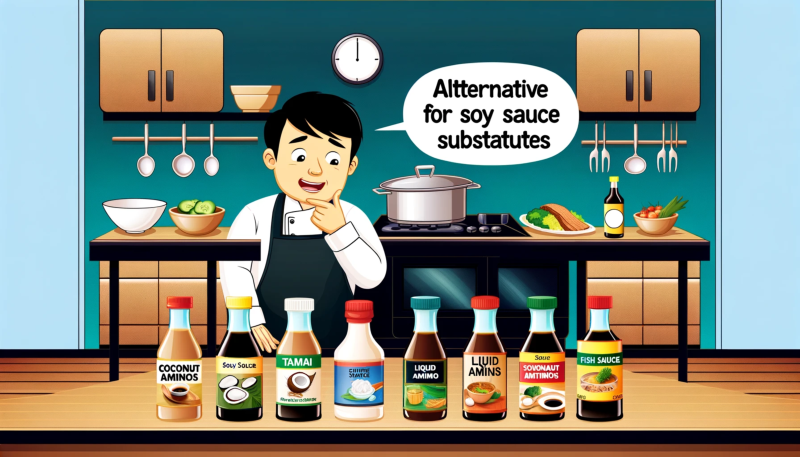Bananas are one of the most beloved fruits worldwide, thanks to their delicious taste and numerous health benefits. However, keeping them fresh can be quite a challenge. Without proper storage and care, bananas can quickly become overripe and mushy, making them unappetizing to eat. But fear not! In this guide, we will explore the best practices for keeping your bananas fresh for longer.
Choosing the right bananas: When buying bananas, it's crucial to select ones that are at the right level of ripeness for your preferences. If you prefer to eat bananas immediately, choose those with bright yellow skins. For those who like slightly green bananas, opt for ones with a tinge of green at the tips. Avoid bananas with brown spots, as they are likely to spoil faster.
Storage temperature: Bananas are quite sensitive to temperature changes, so finding the right spot to store them is essential. Ideally, bananas should be kept at room temperature, around 68-72°F (20-22°C). However, if you want to slow down the ripening process, you can store them in the refrigerator. Keep in mind that refrigeration can cause the skin to darken, but the fruit inside will remain fresh.
See Also: The Ultimate Christmas Gift Guide - Finding the Perfect Presents and Creating the Ultimate Wishlist
Separate and cover: To prevent bananas from ripening too quickly, it's best to separate them from the bunch. When bananas are connected, the ripening process accelerates. Therefore, carefully break them apart and store them individually. Additionally, you can cover the stems of each banana with plastic wrap. This will minimize the release of ethylene gas, a natural hormone that speeds up ripening.
See Also: Is the Pumpkin a Fruit, Vegetable, or Berry? Solving the Puzzle
By following these simple guidelines, you can ensure that your bananas stay fresh and delicious for longer periods of time. Whether you enjoy them on their own, in smoothies, or as a topping for your favorite desserts, properly storing and caring for bananas will ensure a consistent supply of this tasty and nutritious fruit.
papaya
See Also: Finding the Best Replacement for Brown Sugar - Exploring Sweet Alternatives
Best Practices for Storing Bananas
Proper storage and care are essential for keeping bananas fresh and tasty for as long as possible. Follow these best practices to ensure your bananas stay ripe and delicious:
- Avoid direct sunlight: Bananas should be stored in a cool, dry place away from direct sunlight. Exposure to sunlight can cause bananas to ripen too quickly and become mushy.
- Separate from other fruits: Bananas produce a natural ripening agent called ethylene, which can cause other fruits to ripen faster. To prevent this, store bananas separately from other fruits or vegetables.
- Keep them in a bunch: Bananas naturally produce ethylene gas that helps them ripen. By keeping them in a bunch, the ethylene gas is concentrated around the bananas, helping them ripen evenly and slowly.
- Store at room temperature: Bananas should be stored at room temperature until they reach the desired level of ripeness. Once they are ripe, you can refrigerate them to slow down the ripening process.
- Use a banana hanger: Hanging bananas on a banana hanger can help prevent them from getting bruised or squished. This is especially useful if you have limited counter space.
- Avoid refrigerating unripe bananas: Refrigerating unripe bananas can cause the peel to turn black and make the flesh inside mealy. It's best to refrigerate bananas only when they are fully ripe.
- Peel and freeze overripe bananas: If your bananas have become overripe and you can't eat them in time, peel them and place them in a zip-top bag in the freezer. Frozen bananas are great for making smoothies or banana bread.
By following these best practices, you can extend the lifespan of your bananas and enjoy them at their best for longer. Remember to check them regularly to ensure they are still fresh and discard any that have become overripe or spoiled.
What is the best way to store bananas?
Properly storing bananas is essential to keeping them fresh and preventing them from spoiling too quickly. Here are some tips for the best way to store bananas:
- Keep bananas at room temperature: Bananas should be stored at room temperature until they are fully ripe. This allows them to continue ripening naturally and develop their full flavor.
- Separate bananas: To prevent bananas from ripening too quickly, it is best to separate them from the bunch. This helps to avoid the spread of ethylene gas, a natural ripening agent, which can cause them to spoil faster.
- Wrap banana stems: To further slow down the ripening process, you can wrap the stem of the bananas with plastic wrap. This helps to block the release of ethylene gas and keeps the bananas fresher for a longer period of time.
- Store bananas in a cool place: Once bananas are fully ripe, you can extend their shelf life by storing them in a cool place, such as the refrigerator. The lower temperature slows down the ripening process and helps to preserve their freshness.
- Keep bananas away from other fruits: Bananas release more ethylene gas as they ripen, which can speed up the ripening process of other fruits nearby. To prevent this, it is best to store bananas separately from other fruits.
By following these storage tips, you can ensure that your bananas stay fresh and delicious for a longer period of time. Enjoy them as a healthy snack or use them in your favorite recipes without worrying about them spoiling too quickly!
What is the best way to keep bananas from ripening too quickly?
Bananas are a popular fruit that can quickly ripen and become overripe if not stored properly. To keep bananas from ripening too quickly, follow these tips:
- Separate the bananas: One way to slow down the ripening process is to separate the bananas from each other. When bananas are attached, they release more ethylene gas, which speeds up ripening. By separating them, you can prevent them from ripening too quickly.
- Store at room temperature: Bananas should be stored at room temperature until they reach the desired ripeness. Avoid placing them in the refrigerator as this can cause the skin to turn brown and the fruit to become mushy.
- Avoid direct sunlight: Keep bananas away from direct sunlight as this can accelerate the ripening process. Find a cool, dry spot in your kitchen or pantry to store them.
- Wrap the stems: To further slow down the ripening process, you can try wrapping the stems of the bananas with plastic wrap. This helps to contain the ethylene gas and keep it from reaching the rest of the fruit.
- Use a banana hanger: A banana hanger is a great tool for keeping bananas fresh for longer. It allows air to circulate around the bananas, preventing them from becoming too ripe too quickly.
- Refrigerate when ripe: If you have bananas that have reached the desired ripeness, you can place them in the refrigerator to extend their shelf life. The skin may turn brown, but the fruit inside will stay fresh for longer.
By following these tips, you can ensure that your bananas stay fresh and ripe for longer periods of time. Enjoy your bananas at their optimal ripeness and prevent them from going to waste!
How do you keep bananas fresh for 15 days in water?
Keeping bananas fresh for an extended period of time can be a challenge, but storing them in water can help prolong their freshness for up to 15 days. Here's a step-by-step guide on how to keep bananas fresh using this method:
| Step 1: | Fill a bowl or container with cold water. Make sure the container is big enough to accommodate the bananas without overcrowding. |
| Step 2: | Gently place the bananas in the water, making sure they are completely submerged. If necessary, you can cut the bananas into smaller pieces to fit them better. |
| Step 3: | Leave the bananas in the water for the desired duration, up to 15 days. Make sure to keep the container in a cool and dry place, away from direct sunlight. |
| Step 4: | Check the bananas regularly for any signs of spoilage. Remove any bananas that have turned brown or developed mold to prevent them from affecting the others. |
| Step 5: | When you're ready to eat the bananas, remove them from the water and pat them dry with a clean cloth or paper towel. The bananas should still be firm and fresh. |
This method works because submerging the bananas in water helps slow down the ripening process. The water creates a barrier that prevents the release of ethylene gas, a natural hormone that accelerates ripening. By keeping the bananas in water, you can extend their shelf life and enjoy fresh bananas for a longer period of time.
How do you keep cut bananas from turning brown?
Once you've cut a banana, it's only a matter of time before it starts turning brown. However, there are a few tricks you can try to keep your cut bananas looking fresh and appetizing for longer:
1. Lemon or lime juice: The acidity in citrus fruits like lemon or lime can slow down the oxidation process, which is what causes bananas to turn brown. Before cutting your banana, squeeze some lemon or lime juice over the exposed flesh. This will help prevent browning.
2. Plastic wrap: Wrap the cut end of the banana tightly with plastic wrap. This will create a barrier between the fruit and the air, reducing the amount of oxygen it is exposed to and slowing down the browning process.
3. Keep it cool: Bananas are more likely to brown quickly in warm temperatures. Store your cut bananas in the refrigerator to help slow down the enzymatic reaction that causes browning.
4. Honey: Another option is to brush some honey over the cut surface of the banana. Honey has antimicrobial properties and can help inhibit browning.
Remember, even with these tricks, cut bananas will eventually start to turn brown. It's best to use them within a day or two for optimal freshness.
To Refrigerate or Not: Understanding Banana Storage
When it comes to storing bananas, many people wonder whether it is better to refrigerate them or keep them at room temperature. The answer to this question depends on the ripeness of the bananas and how quickly you want them to ripen.
If you want to slow down the ripening process and make your bananas last longer, it is best to refrigerate them. The cold temperature of the refrigerator will help to slow down the enzymatic activity that causes bananas to ripen. However, refrigeration can also cause the skin of the bananas to turn brown. This does not affect the quality or taste of the fruit inside, but it may not look as visually appealing.
On the other hand, if you want your bananas to ripen quickly, it is best to keep them at room temperature. The warmer temperature will speed up the ripening process and allow you to enjoy your bananas sooner. It is important to note that if you have already refrigerated your bananas and then take them out to ripen at room temperature, they may not ripen evenly and may develop brown spots.
Another factor to consider is that bananas produce ethylene gas, a natural ripening agent. This gas can cause other fruits and vegetables to ripen faster, so it is best to keep bananas separate from other produce if you want to avoid accelerating the ripening process of other items.
In conclusion, the decision to refrigerate or not depends on your personal preference and how quickly you want your bananas to ripen. If you prefer to have ripe bananas on hand at all times, refrigeration may not be the best option. However, if you want to extend the shelf life of your bananas and don't mind a slightly browned skin, refrigeration can be a good choice. Experiment with both methods to find the storage method that works best for you.
Should you store bananas in the fridge?
When it comes to storing bananas, the refrigerator is not always the best option. While refrigeration can slow down the ripening process, it can also cause the banana peel to turn brown and the fruit inside to become mushy. This is because the cold temperature in the fridge can break down the cell walls of the banana, resulting in a less desirable texture.
Instead, it is recommended to store bananas at room temperature. This allows them to ripen naturally and develop their full flavor. However, if you notice that your bananas are ripening too quickly and you want to slow down the process, you can separate them from each other. This will prevent them from releasing ethylene gas, which speeds up the ripening process.
If you have ripe bananas that you're not ready to eat yet, you can store them in the refrigerator for a short period of time. Just be aware that the peel may turn brown, but the fruit inside should still be fine. Once you take the bananas out of the fridge and let them come back to room temperature, they will be ready to eat.
In conclusion, while it is generally best to store bananas at room temperature, there may be situations where refrigeration can be useful. Just keep in mind the potential changes in texture and appearance that may occur when you store bananas in the fridge.
Should an open banana be refrigerated?
Once a banana has been peeled, it is best to store it at room temperature rather than refrigerating it. The cold temperature of the refrigerator can cause the banana to turn brown and become mushy more quickly. This is because the cell walls of a banana are damaged by the low temperatures, causing it to break down and decay faster.
Instead of refrigerating an open banana, it is recommended to consume it as soon as possible to enjoy its optimal taste and texture. If you need to store a partially eaten banana for a short period of time, you can wrap the exposed end tightly with plastic wrap or place it in an airtight container to slow down the browning process. However, keep in mind that the quality of the banana may still deteriorate over time.
If you find yourself with an abundance of ripe bananas and cannot consume them all in time, you can consider freezing them. Simply peel the bananas, cut them into smaller pieces, and place them in a freezer-safe bag or container. Frozen bananas can be used for making smoothies, baking, or as a healthy frozen treat.
In conclusion, refrigerating an open banana is not recommended as it can accelerate the ripening process and affect its quality. It is best to consume a peeled banana promptly or freeze it for later use.
How long can bananas be stored in cold storage?
Bananas can be stored in cold storage for an extended period of time, allowing them to remain fresh for a longer duration. The specific length of time that bananas can be stored in cold storage can vary depending on a few factors, including the ripeness of the bananas at the time of storage and the temperature and humidity levels of the cold storage facility.
When stored in cold storage at temperatures between 55°F (13°C) and 60°F (16°C), unripe bananas can last for up to two weeks. However, it's important to note that the bananas will continue to ripen slowly during this time, so they should be monitored closely to ensure they are not overripe when taken out of storage.
If the bananas are already ripe when placed in cold storage, they will typically last for about one to two weeks before becoming overripe. It's essential to handle ripe bananas with care during the storage period to prevent bruising and damage, as this can accelerate the ripening process.
It's also important to maintain the proper humidity levels in the cold storage facility to prevent the bananas from drying out. The ideal humidity range for banana storage is between 85% and 95%. This can be achieved by using humidifiers or by placing trays of water in the storage area to increase the moisture content in the air.
| Ripeness | Storage Temperature | Storage Duration |
|---|---|---|
| Unripe | 55°F (13°C) to 60°F (16°C) | Up to 2 weeks |
| Ripe | 55°F (13°C) to 60°F (16°C) | 1 to 2 weeks |
By following proper storage techniques and maintaining the appropriate temperature and humidity levels, bananas can be stored in cold storage for an extended period, allowing for a longer shelf life and ensuring that they remain fresh and delicious.
Tips to Prevent Bananas from Browning
Bananas are a delicious and nutritious fruit, but they can quickly turn brown if not properly stored and cared for. Here are some tips to prevent bananas from browning:
| Tip | Description |
| 1 | Separate the bananas |
| 2 | Wrap the stems |
| 3 | Store in a cool place |
| 4 | Avoid placing near other fruits |
| 5 | Use lemon juice |
By following these simple tips, you can keep your bananas fresh and prevent them from browning too quickly. Enjoy your ripe and delicious bananas for longer!
How do I keep my bananas from turning brown?
Bananas can turn brown quickly if not properly stored and cared for. Here are some tips to help keep your bananas fresh and prevent them from turning brown:
- Store bananas at room temperature: Bananas should be stored at room temperature until they reach the desired ripeness. Once ripe, they can be stored in the refrigerator to slow down the ripening process and prevent browning.
- Separate bananas: If you have a bunch of bananas, it's best to separate them. This is because as the bananas ripen, they release a gas called ethylene, which speeds up the ripening process. By separating the bananas, you can prevent them from ripening too quickly and turning brown.
- Wrap the stems: The stems of bananas are the main source of ethylene gas. To prevent the gas from reaching the rest of the banana and causing it to ripen faster, you can wrap the stems in plastic wrap or aluminum foil.
- Keep bananas away from other fruits: Fruits like apples, pears, and tomatoes also release ethylene gas, which can accelerate the ripening process of bananas. To prevent browning, it's best to store bananas away from these fruits.
- Use lemon juice: Lemon juice can help slow down the browning process of bananas. Simply brush or dip the cut ends of the banana with lemon juice to prevent them from turning brown.
By following these simple tips, you can keep your bananas fresh and prevent them from turning brown for a longer period of time.
How do you keep bananas from browning in a recipe?
When using bananas in a recipe, it can be frustrating to see them quickly turn brown and lose their fresh appearance. However, there are a few simple techniques you can use to keep your bananas from browning:
1. Use lemon juice: The acid in lemon juice can help slow down the oxidation process that causes bananas to brown. Before adding the bananas to your recipe, lightly coat them with lemon juice.
2. Wrap them tightly: To prevent exposure to air, which can speed up the browning process, wrap the bananas tightly in plastic wrap or place them in an airtight container.
3. Keep them separate: If you're using bananas in a dish that requires slicing or mashing, keep them separate from other ingredients until you're ready to use them. This will help minimize contact with the air and slow down browning.
4. Use them when they're still slightly green: Bananas that are less ripe will take longer to brown. If you want to use bananas in a recipe without them browning too quickly, choose ones that are still slightly green.
5. Freeze them: If you're not planning to use your bananas right away, consider freezing them. Freezing not only prevents browning but also allows you to have ripe bananas on hand for future recipes.
By following these tips, you can ensure that your bananas stay fresh and vibrant in your recipes, without worrying about them turning brown too quickly.
Innovative Ways to Extend the Freshness of Bananas
While proper storage and care are essential for keeping bananas fresh, there are also some innovative methods you can try to extend their freshness even further. These methods include:
- Using banana hangers: Hanging bananas can help increase airflow around them, reducing the chances of them ripening too quickly. Banana hangers are specifically designed to hold bananas and keep them off the countertop.
- Wrapping the stem: The stem of a banana is where ethylene gas is released, which speeds up the ripening process. By wrapping the stem tightly with plastic wrap, you can prevent the release of ethylene gas and slow down the ripening process.
- Separating bananas: Bananas release ethylene gas as they ripen, which can cause nearby fruits to ripen faster. To prevent this, consider separating bananas from other fruits and storing them in a separate area.
- Using a banana storage bag: Banana storage bags are designed to regulate the airflow around bananas, helping to prevent them from ripening too quickly. These bags can be found in stores or online and are a convenient way to extend the freshness of your bananas.
- Freezing bananas: If you have bananas that are about to become overripe, consider freezing them. Peel the bananas, cut them into chunks, and place them in an airtight container or freezer bag. Frozen bananas can be used for smoothies, baking, or as a healthy frozen treat.
By implementing these innovative methods, you can maximize the lifespan of your bananas and enjoy them at their freshest for longer periods of time.
How do you prolong the freshness of bananas?
Proper storage and care are essential for prolonging the freshness of bananas. Here are some tips to help you keep your bananas fresh for longer:
- Separate bananas from the bunch: When you bring home a bunch of bananas, it's best to separate them from each other. This prevents them from ripening too quickly and helps to avoid the spread of spoilage if one banana starts to rot.
- Store at room temperature: Bananas should be stored at room temperature, away from direct sunlight and heat sources. Placing them in a cool area of your kitchen will help slow down the ripening process.
- Avoid storing near other fruits: Bananas release ethylene gas, a natural ripening agent, which can accelerate the ripening of other fruits. Keep bananas away from other fruits, especially those that are sensitive to ethylene, such as apples, avocados, and berries.
- Use a banana hanger or hook: To prevent bruising and maintain air circulation, consider using a banana hanger or hook. This will help keep the bananas fresh by reducing pressure on the fruit and preventing them from touching any surfaces.
- Wrap the stem: To slow down the ripening process, you can wrap the stem of the bananas with plastic wrap. The stem is the area where ethylene gas is released, so covering it can help reduce the gas and prolong the freshness of the fruit.
- Refrigerate ripe bananas: If your bananas are ripening too quickly and you can't consume them all, you can refrigerate them. The skin may turn brown in the refrigerator, but the fruit inside will remain fresh for a longer time.
- Freeze overripe bananas: If your bananas have become overripe, don't throw them away! Peel and freeze them for later use in smoothies, banana bread, or as a healthy frozen treat. Freezing bananas will help preserve their freshness and prevent waste.
By following these storage and care tips, you can prolong the freshness of your bananas and enjoy them for longer periods of time.
How do you increase the shelf life of a ripe banana?
Once a banana reaches its desired ripeness, it's important to take steps to extend its shelf life. Here are a few tips to help you keep your ripe bananas fresh for longer:
1. Separate the bananas: If you have a bunch of ripe bananas, separating them can help prevent them from ripening too quickly. When bananas are close together, they release more ethylene gas, which speeds up the ripening process. By giving each banana some space, you can slow down the ripening process and extend their shelf life.
short haircuts for women
2. Store them at room temperature: Ripe bananas should be stored at room temperature, away from direct sunlight. Avoid placing them near other fruits or vegetables, as they can also release ethylene gas and accelerate the ripening process. Keeping them in a cool and dry place can help slow down the ripening process and prolong their freshness.
3. Wrap the stems: The stems of bananas are one of the main areas where ethylene gas is released. By wrapping the stems with plastic wrap or aluminum foil, you can minimize the gas release and slow down the ripening process. This simple trick can help extend the shelf life of your ripe bananas.
4. Refrigerate: If you want to further extend the shelf life of your ripe bananas, you can place them in the refrigerator. The skin may turn brown in the cold environment, but the fruit inside will remain fresh for a longer period. However, keep in mind that refrigerated bananas may have a softer texture and a slightly altered taste.
By following these simple tips, you can increase the shelf life of your ripe bananas and enjoy them for a few more days. Remember to check on them regularly to ensure they are still fresh and discard any that have gone bad.
What is the hack for keeping bananas fresh?
Keeping bananas fresh can be a challenge, as they tend to ripen quickly and spoil. However, there is a simple hack you can use to extend the shelf life of your bananas:
- Separate the bananas: One of the main reasons bananas ripen quickly is due to the release of ethylene gas. By separating the bananas from each other, you can slow down the ripening process.
- Wrap the stems: The stems of bananas are the main source of ethylene gas. By wrapping the stems in plastic wrap, you can further reduce the release of this gas and keep the bananas fresh for longer.
- Store at room temperature: While it may be tempting to store bananas in the refrigerator, this can actually speed up the ripening process. Instead, keep your bananas at room temperature to maintain their freshness.
- Store with other fruits: If you want to ripen your bananas faster, you can store them with other fruits. Fruits like apples, avocados, and tomatoes produce ethylene gas, which can help speed up the ripening process.
- Consider freezing: If you have overripe bananas that you don't want to go to waste, you can freeze them. Simply peel the bananas, cut them into slices, and place them in a freezer bag. Frozen bananas can be used in smoothies or baked goods.
By following these simple hacks, you can keep your bananas fresh for longer and reduce waste. Enjoy your perfectly ripe and delicious bananas whenever you want!
Q&A:
How long can bananas stay fresh?
Bananas can stay fresh for about 5-7 days when stored at room temperature.
What is the best way to store bananas?
The best way to store bananas is to keep them at room temperature, away from direct sunlight and other fruits.
Can you store bananas in the refrigerator?
Yes, you can store bananas in the refrigerator to extend their shelf life. However, the peel may turn brown, but the fruit inside will remain fresh.
How can I prevent my bananas from ripening too quickly?
You can prevent bananas from ripening too quickly by separating them from the bunch and storing them in a cool place. You can also wrap the stems with plastic wrap to slow down the ripening process.
What should I do with overripe bananas?
You can use overripe bananas to make banana bread, smoothies, or freeze them for later use in baking or making banana ice cream.
How long can I store bananas before they go bad?
You can store bananas for up to a week before they start to go bad. However, the exact time will depend on the ripeness of the bananas when you bought them.
What is the best way to store bananas to keep them fresh?
The best way to store bananas is to keep them at room temperature, away from direct sunlight. You can also hang them on a banana hook to prevent them from bruising. Avoid storing them in the refrigerator, as this can cause the skin to turn black.
Can I freeze bananas to keep them fresh for longer?
Yes, you can freeze bananas to keep them fresh for longer. Simply peel the bananas, cut them into chunks, and place them in an airtight container or freezer bag. Frozen bananas can be used in smoothies or baked goods.
How can I prevent bananas from ripening too quickly?
To prevent bananas from ripening too quickly, you can separate them from the bunch and wrap the stems in plastic wrap. This will help to slow down the ripening process. You can also store them in a paper bag with an apple or tomato, as these fruits release ethylene gas, which speeds up the ripening process.





